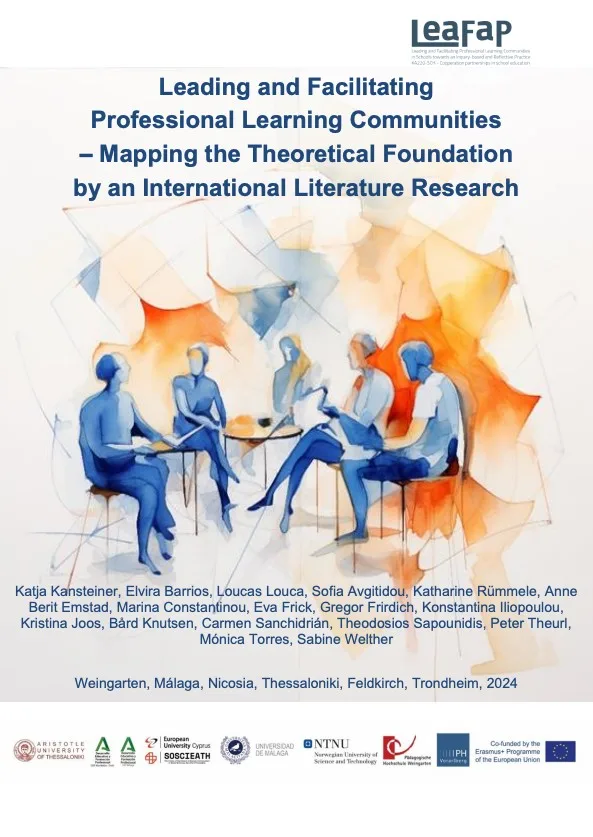
The aim of the following synopsis is to systematize specific empirical experiences and conceptual ideas that are being discussed in the international discourse, mainly in European countries. We offer these insights to show how the concept of PLCs is laid out and particularly moderation, leadership or guidance of PLCs should be designed so that an exchange among PLC-members takes plane that promotes learning and development and a reflective approach to the challenges of school practice which leads to innovation in school.
On the basis of reviews of selected papers from several discourses an international overview of conceptual ideas on the field of “leading and facilitating PLCs for inquiry & reflection” is put together.
Download available: The full reports related to the literature review are available for download further down on this page.
International Report – English
Kansteiner, K., Barrios, E., Louca, L., Avgitidou, S., Rümmele, K., Emstad, A. B., Constantinou, M., Frick, E., Frirdich, G., Iliopoulou, K., Joos, K., Knutsen, B., Sanchidrián, C., Sapounidis, T., Theurl, P., Torres, M., & Welther, S. (2024). Leading and facilitating professional learning communities – Mapping the theoretical foundation by an international literature research. LeaFaP Project. https://www.leafap.eu/
This international literature review from the LeaFaP project explores the theoretical and practical dimensions of leading and facilitating Professional Learning Communities (PLCs) across Europe and the U.S. It synthesizes findings from six national reports, focusing on definitions, leadership and facilitation roles, and strategies for effective implementation. Key themes include inquiry, reflection, and collaboration, as well as challenges such as sustaining dialogue and addressing structural constraints. The report proposes a framework to guide PLC leadership with relevance for professional development and educational policy.
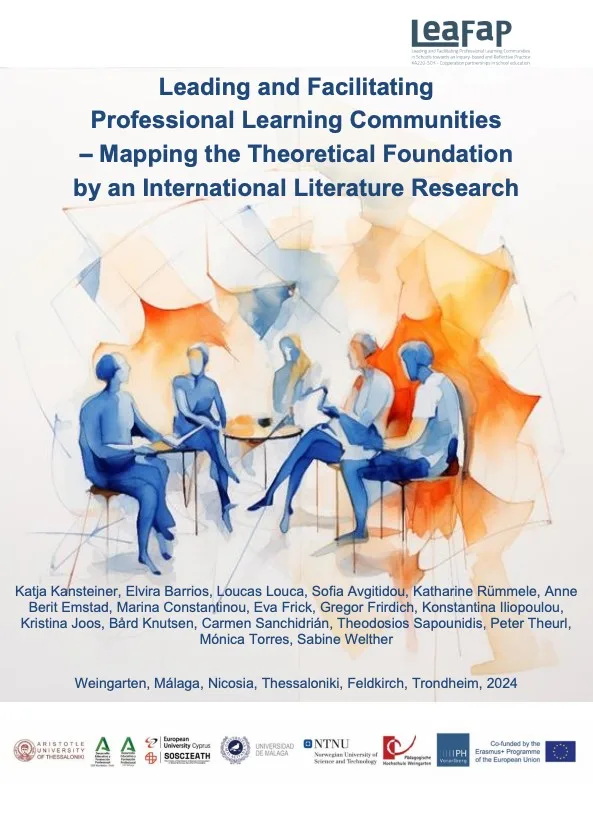
USA – English
Louca, L. T., & Constantinou, M. (2023). Literature review on leading and facilitating professional learning communities – in USA. LeaFaP Project. https://www.leafap.eu/
This literature review explores the roles of leadership and facilitation in developing and sustaining Professional Learning Communities (PLCs) in the U.S. educational context. Based on seven empirical studies, it highlights the importance of distributed leadership, trust, collaborative inquiry, and reflective practice. The review examines how leadership—particularly from principals and teacher leaders—shapes professional development and teaching outcomes. It also discusses challenges such as adaptability during crises (e.g., COVID-19) and the need for supportive structures. Ultimately, the findings emphasize PLCs’ transformative potential when grounded in trust, shared vision, and ongoing reflection.

Spain – English & Spanish
Barrios, E., Torres, M., & Sanchidrián, C. (2023). Literature review on leading and facilitating professional learning communities in Spain and Spanish-speaking countries. LeaFaP Project. https://www.leafap.eu/
Barrios, E., Torres, M., & Sanchidrián, C. (2023). Revisión de literatura sobre el liderazgo y la facilitación de Comunidades Profesionales de Aprendizaje en España y países de habla hispana. Proyecto LeaFaP. https://www.leafap.eu/
This literature review examines research and policy on the leadership and facilitation of Professional Learning Communities (PLCs) in Spain and Spanish-speaking Latin America. Based on eight key sources, it explores how PLCs are initiated, supported, and sustained. Key themes include the roles of inquiry and reflection, differentiated support by leaders and facilitators, and structural or cultural challenges. The review emphasizes how collaborative inquiry fosters innovation and professional growth, offering strategies for PLCs at different development stages. It ends with recommendations for inquiry- and reflection-based leadership and facilitation.
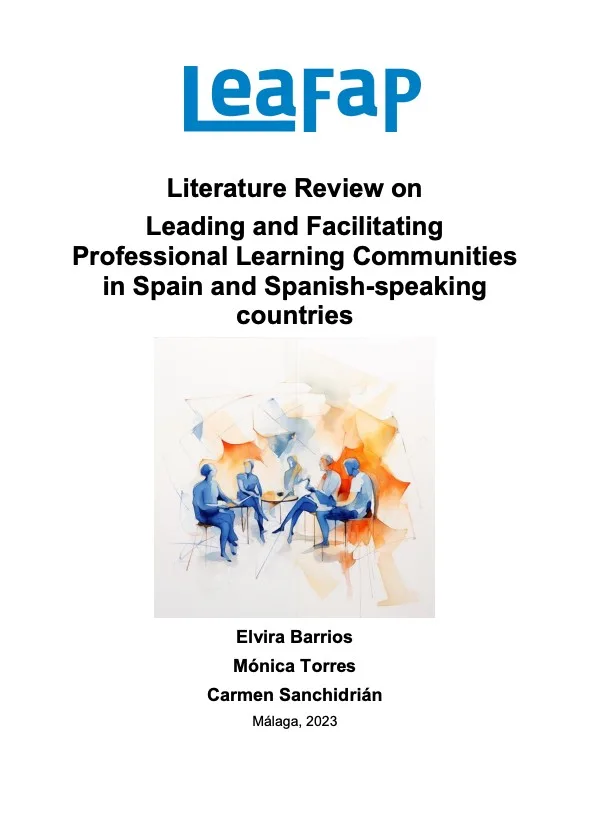
Greece – English & Greek
Avgitidou, S., Iliopoulou, K., & Sapounidis, T. (2023). Literature review on leading and facilitating professional learning communities in the Greek speaking world. LeaFaP Project. https://www.leafap.eu/
Αυγίτιδου, Σ., Ηλιοπούλου, Κ., & Σαπουνίδης, Τ. (2023). Ηγεσία και διευκόλυνση επαγγελματικών κοινοτήτων μάθησης στον ελληνόφωνο κόσμο: Βιβλιογραφική ανασκόπηση. Έργο LeaFaP. https://www.leafap.eu/
This literature review explores how Professional Learning Communities (PLCs) are conceptualized, implemented, and supported in the Greek-speaking world. Based on seven empirical studies, it examines the roles of facilitators and school leaders in initiating and sustaining PLCs, with particular attention to inquiry and reflection processes. While inquiry is addressed in various forms, structured support for reflection is often assumed rather than explicitly described. Challenges include time constraints, rigid school structures, and varying levels of readiness among participants. The review highlights the importance of shared leadership, trust, and context-sensitive facilitation for effective and sustainable PLCs.
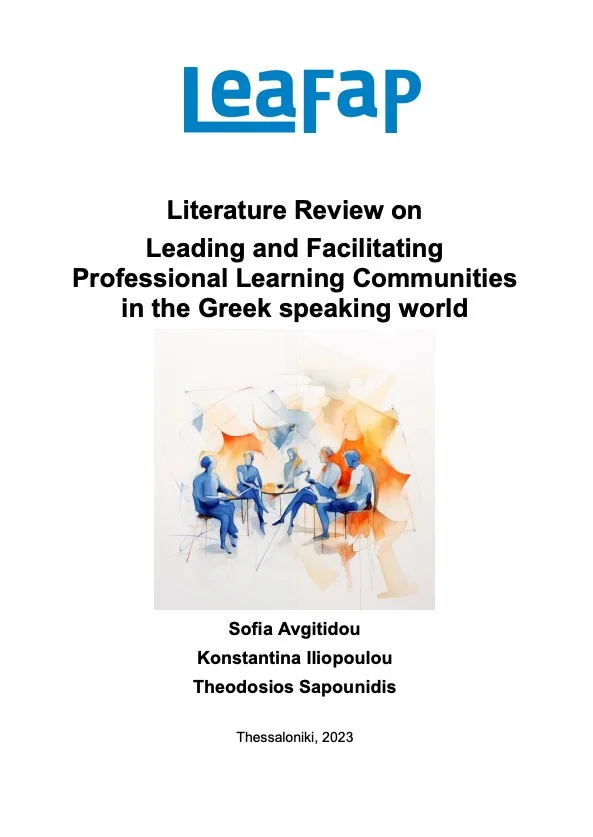
Norway – English & Norwegian
Emstad, A. B., & Knutsen, B. (2023). Literature review on leading and facilitating professional learning communities – in Norway. LeaFaP Project. https://www.leafap.eu/
Emstad, A. B., & Knutsen, B. (2023). Litteraturgjennomgang om ledelse og tilrettelegging av profesjonelle læringsfellesskap – i Norge. LeaFaP-prosjektet. https://www.leafap.eu/
This literature review explores how leadership and facilitation practices support Professional Learning Communities (PLCs) in Norway. Drawing on eight academic articles and three books, it identifies three primary PLC settings: internal school-based groups, development project groups, and those linked to continuing education. Central themes include inquiry-based reflection, the importance of structured support, and the dual role of leaders as facilitators and colleagues. Challenges include fostering critical reflection, ensuring psychological safety, and bridging individual learning with collective school development. The review emphasizes that trained facilitators and flexible structures are key to sustaining effective PLCs.
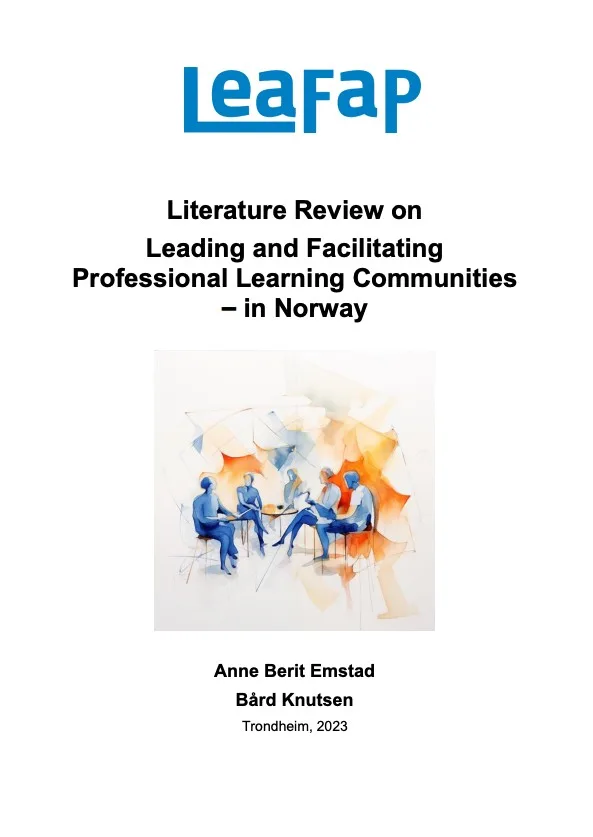
Austria, Germany, Switzerland – English & German
Rümmele, K., Theurl, P., & Frick, E. (2023). Literature review on leading and facilitating professional learning communities – in the German speaking area. LeaFaP Project. https://www.leafap.eu/
Rümmele, K., Theurl, P., & Frick, E. (2023). Literatur Review zur Leitung und Förderung Professioneller Lerngemeinschaften im deutschsprachigen Raum. LeaFaP-Projekt. https://www.leafap.eu/
This literature review analyzes how Professional Learning Communities (PLCs) are led and facilitated in German-speaking countries. Drawing on academic studies and Master’s theses, the review identifies the central role of school leadership in initiating, supporting, and sustaining PLCs. Key elements include structured support, collaborative inquiry, reflective dialogue, and the use of both internal and external facilitators. Projects like KidZ Vienna and DigitUS highlight the importance of flexible structures, knowledge partners, and trained multipliers. Challenges include limited empirical research, time constraints, and the need for role clarity. Effective PLCs rely on distributed leadership, a supportive culture, and embedded reflection processes.
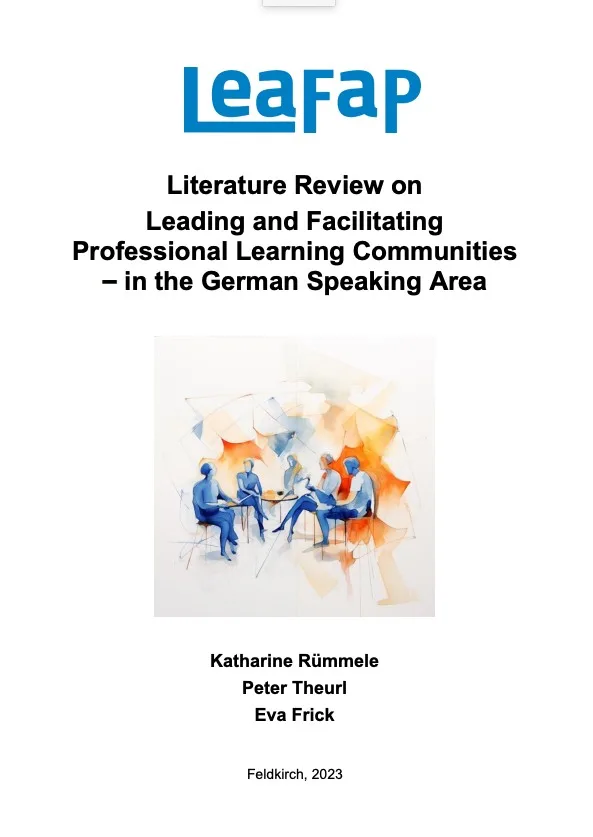
Further European Countries – English & German
Kansteiner, K., Frirdich, G., Welther, S., & Joos, K. (2024). Literature review on leading and facilitating professional learning communities – in selected European countries. LeaFaP Project. https://www.leafap.eu/
Kansteiner, K., Frirdich, G., Welther, S., & Joos, K. (2023). Literaturreview zur Leitung und Förderung Professioneller Lerngemeinschaften – in ausgewählten europäischen Ländern. LeaFaP-Projekt. https://www.leafap.eu/
This literature review examines how Professional Learning Communities (PLCs) are conceptualized and supported in selected European countries beyond the project consortium. Based on studies from Great Britain, Finland, Sweden, Estonia, the Netherlands, Ireland, and Switzerland, it explores varied PLC models and the roles of internal leaders and external facilitators. Key themes include collaborative reflection, inquiry-based learning, and action research. The review highlights conditions, leadership practices, and facilitator skills that support sustainable professional learning, stressing the balance between autonomy and guidance and the use of research-based methods.
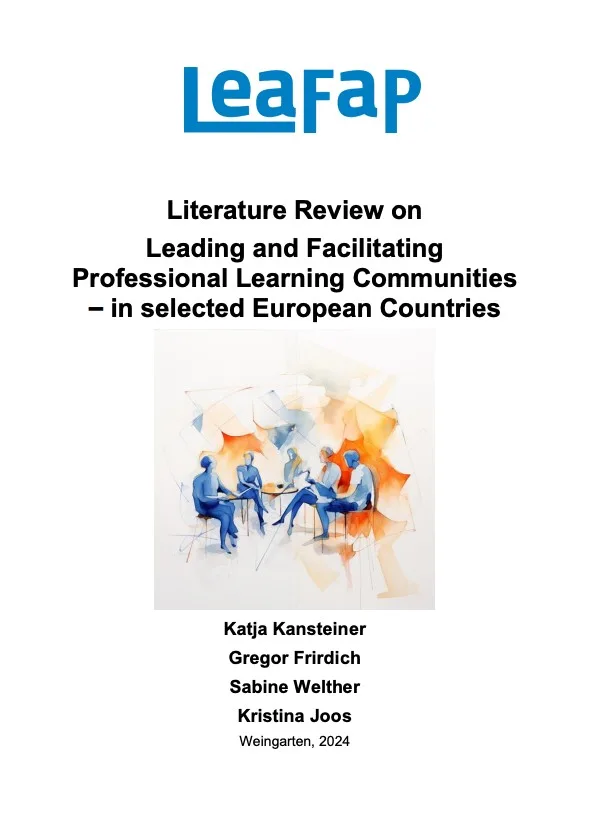
Leave a Reply
You must be logged in to post a comment.